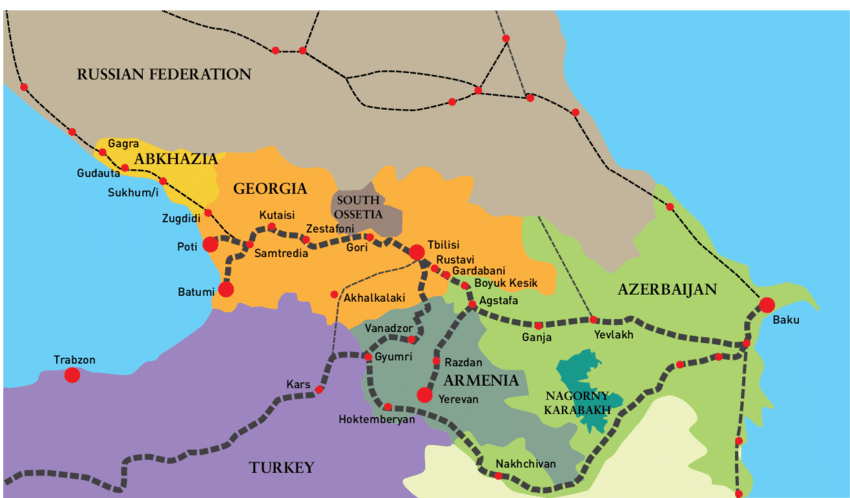
The signing of a US-mediated peace declaration by South Caucasus nations of Armenia and Azerbaijan in Washington has caused concerns in neighbouring Iran and Russia.
Armenia and Azerbaijan signed a peace declaration alongside Donald Trump on Friday, ending the 35 years of enmity between the two countries and agreeing to a US private consortium taking control over the transport corridor on Iran’s border. The corridor passing trough southern Armenia on Iran’s border, will grant Azerbaijan “unimpeded” access to its Nakhchivan exclave, a demand put forward by Baku since its victory in the war with Armenia in 2022. Under the newly-signed deal, the US has been given a 99-year land lease to operate the road under Armenia’s sovereignty.
The transport road named the “Trump Route for International Peace and Prosperity”, will undoubtedly strengthen the US influence in the South Caucasus region, raise prospects of US presence on Iran’s border and threaten to impede Iran’s access to Armenia.
Ali Akbar Velayati, a senior adviser to Iran’s supreme leader, pledged following the signing of the deal, that Tehran will stop the establishment of the road, even without Russia’s help. “Mister Trump thinks the Caucasus is a piece of real estate he can lease for 99 years. This passage will not become a gateway for Trump’s mercenaries - it will become their graveyard,” Velayati told IRGC-affiliated Tasnim News on Saturday. The senior official said Tehran had always “opposed” the so-called Zangezur corridor that he claimed would change Armenia’s border and restrict Iran’s regional access. He described the road as a “political treachery”.
Iran’s Foreign Ministry also expressed disapproval of the transport road, citing “foreign interference”. In a statement on Saturday the ministry said: “Establishing communication networks will serve the security, and economic development of the nations of the region when it is done within the framework of mutual interests, respecting the national sovereignty and territorial integrity of the countries of the region, and without foreign interference”.
Abbas Mousavi, former Iranian ambassador to Baku and a deputy presidential spokesperson, described US involvement in Azerbaijan-Armenia peace talks as “interesting, offensive and dangerous”.
The Trump-brokered deal is also a blow to the Kremlin that is gradually losing grip of the South Caucasus region where it had been the main player for centuries. However, Russia’s reaction to the surprise meeting in Washington was not as strong-worded as Iran’s response. In a statement on Saturday, Russian Foreign Ministry Spokesperson Maria Zakharova described the US-mediated peace talks between Pashinyan and Aliyev as “positive”. However, she reminded that Baku and Yerevan had earlier expressed their willingness to hold direct talks without the involvement of third parties. She was most likely referencing to the first direct talks between Pashinyan and Aliyev in Abu Dhabi, which was held in July without Russia’s involvement. Russia, which has a military base in Armenia, is unable to stop Trump’s involvement in peace talks due to its preoccupation with Ukraine war.
Comments
Leave a Reply
Your email address will not be published. Required fields are marked *